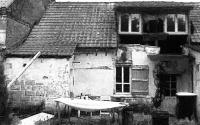1 June 2007The Independent
It was the week the weather went crazy - not just here, but in continental Europe as well. And, inevitably, it caused fresh concern about what global warming might be doing to our climate.
While record rains buffeted Britain - leading to widespread flooding and its greatest ever peacetime rescue operation - southern Europe was fighting massive fires sparked by unprecedented heat.
Monday was Britain's wettest ever summer day - two months'-worth of rain pelted down in 12 hours, ensuring the most sodden June on record. As the Environment Agency put it, flooding went "off the scale". At least seven people died and 3,500 were rescued from swamped homes, mainly in Yorkshire and the Midlands.
Greece, by contrast, baked in its greatest heatwave, with temperatures topping 46C in Athens, and more than 120 wildfires broke out across the country. The heat was similar in mainland Italy, Sicily, Cyprus, Bulgaria and Romania, while even Paris and Berlin touched 39C. At least 49 people died.
After a brief respite at the end of the week, both crises are set to resume - with fresh downpours in Britain and more sweltering sun to the south. They are two sides of the same climatic coin. The immediate cause is a southwards shift of the jet stream - the giant, undulating current of air that flows west to east some five miles up across the northern hemisphere. This causes the high pressure that usually parks over the Azores at this time of year and brings us flaming June but is now giving the continent a blazing one.
At the same time, storms that would normally pass to the north of us have volleyed into Britain instead.
Climatologists suspect that global warming has something to do with this, but no one can be sure. What they do say is that there will be more extremes - more heatwaves and more frequent, more intense rainfall - as the world warms up. Greater heat will inject more energy into the climate system, causing storms as well as droughts.
We have made ourselves very vulnerable to such a future. We have sited half of our post-war new housing on floodplains, often in breach of official planning advice.






